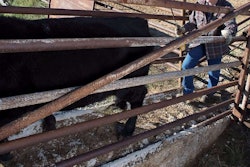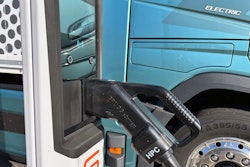For the last few weeks in the off time I’ve been slowly getting through Texas-based former household-goods-hauling owner-operator Fred Afflerbach’s new novel, a follow-up/sequel to Afflerbach’s excellent 2012 Roll On book. (The new book’s called The Bison & the Butterfly, available via this link, but more on that later.) I talked a bit with Afflerbach last week, during the round of stories from the February issue cover feature about the state-to-state patchwork of gun laws and carrying for personal protection, among other related issues.
Afflerbach lauded the feature, and also shared a couple anecdotes that illustrate the long run of the parking issues truckers have on the road and how stiff some state and local enforcement departments can be on firearms.
Back around 1980, when the former owner-operator was hauling household goods all around the country in one of a couple Peterbilt 362 cabovers he owned (in addition to his first truck, a GMC Astro), a personal friend had given him a pistol worried about his safety after hearing about some of the operator’s run-ins with unsavory types out on the road. (He shared one of those, too, brought back to mind after reading the “Danger Zone” story: A late-night encounter in a mostly-empty motel parking lot with ample truck spaces, in rural Georgia, where Afflerbach had briefly parked for some shut-eye in lieu of any other options, a familiar situation even today, of course. The motel owner banged on his truck’s door to wake him. “You pay me,” he was saying, as Afflerbach struggled awake and exited the truck. “Then he pulls a gun,” Afflerbach said, after which he was happy to leave. He went about two blocks to a service station where there was a policeman. He told the cop what happened. “You just need to hit the road, driver,” he said.)
“At the time,” Afflerbach said, “Massachusetts had a one-year mandatory minimum sentence for anyone bringing a firearm into the state” — the minimum sentence applied to anyone carrying a gun without the proper state-issued licence, and “it made no difference if the gun were loaded, unloaded, in the open or concealed,” notes this brief history of firearm laws in Massachusetts. “Carrying was a felony.”
Afflerbach had essentially put the pistol, unloaded, in the truck with him and more or less forgotten about it when he crossed into Mass. to deliver a load. After getting “caught in a speed trap,” he says, and stopped, he was arrested and “spent the night in jail” on account of the firearm, before the whole thing was eventually thrown out later in court.
“I never even fired that pistol,” he says, “never loaded it or anything. I knew nothing about that law until I was crossing the state line.”









